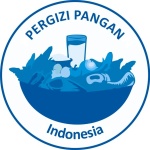1. FACTORS AFFECTING GROUP EFFECTIVENESS IN INDONESIAN RURAL DEVELOPMENT: STAKEHOLDERS’ CRITICAL SELF-REFLECTION
Abstract
ABSTRACT
Group has been used as one major approach to promote community learning and community participation in Indonesian rural development. For these reasons, many types of groups have been established in especially rural areas such as Water User Associations, Cattle Fattening Groups, Farmer Groups, Mass Media Study Groups and Poverty Groups. Through these groups rural development programs are promoted, e.g., agricultural development and poverty alleviation. However, researchers on rural community development are more interested in evaluating program effectiveness while little attention given to group effectiveness. As a social innovation, group may also be see within the context of innovation decision process, especially those groups introduced by development agencies, either government or non-governmental agencies. The focus of this paper is to discuss factors affecting group effectiveness based on group members and other stakeholders’ critical self-reflection. By using Modified Participatory Action Research (MPAR) three phases fieldwork were conducted in West Lombok district West Nusa Tenggara province Indonesia. Several factors associated with group effectiveness were identified through this longitudinal study. These factors are agency approaches to the group (establishment and action) group leadership, members’ knowledge, and participation. This study suggests that the approach to the groups and the community’s perception of issues and needs are considered as the key components to promote effective groups for effective and sustainable rural development.







